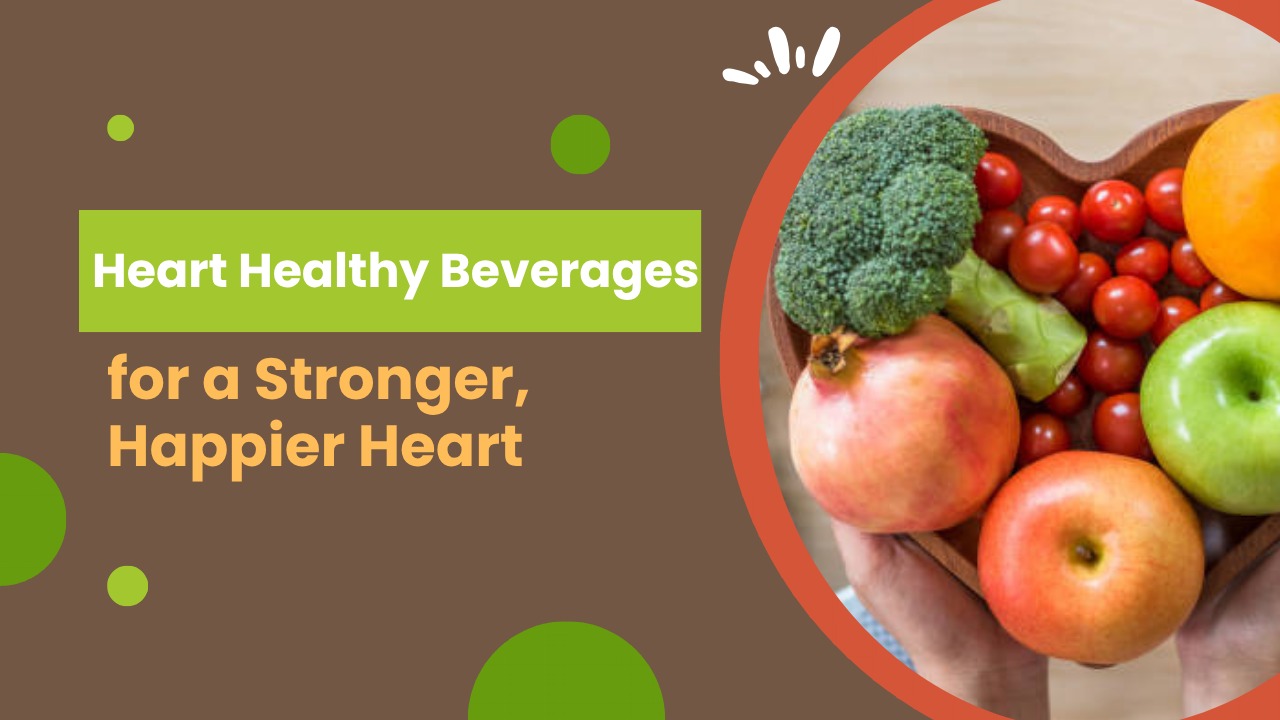Heart healthy beverages are drinks that support cardiovascular function by improving blood flow, lowering blood pressure, and reducing cholesterol. These include options like green tea, beet juice, pomegranate juice, infused water, and unsweetened plant-based milks. They’re packed with antioxidants, anti-inflammatory compounds, and essential nutrients that benefit your heart.
These drinks nourish your cardiovascular system by promoting nitric oxide production, reducing oxidative stress, and improving hydration. They relax blood vessels, enhance circulation, and help maintain a healthy lipid profile—all crucial for a strong and efficient heart.
Your heart beats over 100,000 times a day, tirelessly pumping life through your body. While food and exercise matter, your drink choices also play a powerful role in heart health. Replacing sugary or processed drinks with heart healthy beverages can make a major difference in long-term wellness.
In this article, we’ll explore everything you need to know about heart-healthy beverages—from the science behind them to the best choices, how they work, and why they matter. Plus, we’ll cover the Top 8 heart-healthy beverage tips you can start implementing today.
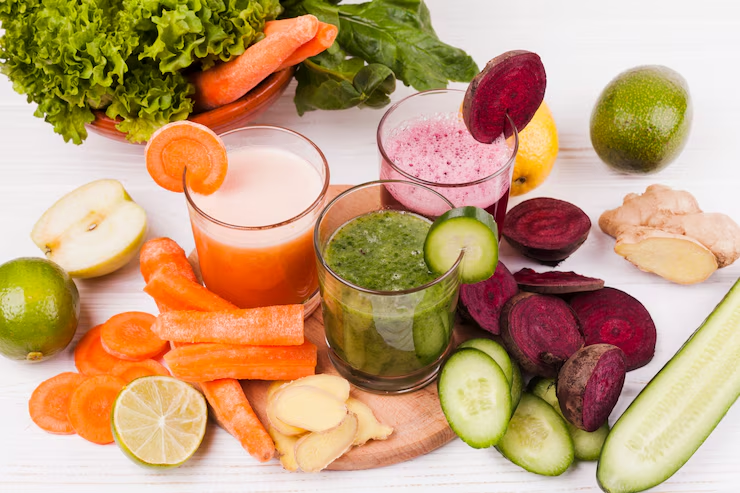
Why Beverages Matter for Heart Health
Before we dive into the top choices, it’s essential to understand why selecting the right drinks matters. The beverages you consume daily can either support or sabotage your heart’s health. By understanding the benefits of heart healthy beverages, you can make smarter choices that contribute to your long-term cardiovascular wellness.
✅ Hydration Affects Heart Performance: Your heart is a hardworking muscle, and like any muscle, it needs adequate hydration to function properly. When you’re dehydrated, your blood becomes thicker and more difficult to pump, which makes your heart work harder. This increased strain can raise your blood pressure and increase the risk of heart-related issues. Staying well-hydrated with heart healthy beverages like water, coconut water, and herbal teas ensures smoother circulation and efficient cardiac function.
✅ Nutrient-Rich Liquids Can Reduce Risk Factors: Not all drinks are created equal. Some are rich in heart-friendly nutrients like potassium, magnesium, flavonoids, and antioxidants. These nutrients are known to help regulate blood pressure, combat inflammation, reduce LDL (bad) cholesterol, and improve blood vessel function. Examples of such heart healthy beverages include beetroot juice, green tea, pomegranate juice, and dark berry smoothies. Incorporating these drinks into your routine can significantly reduce your risk of heart disease over time.
✅ Avoiding Harmful Beverages is Equally Important: While adding nutrient-dense drinks is essential, eliminating harmful ones is just as critical. Sugar-laden sodas, energy drinks, excessive coffee, and alcohol can negatively impact heart health by contributing to high blood sugar levels, increased blood pressure, weight gain, and inflammation. Replacing these with heart healthy beverages is a small but powerful change. Over time, these swaps can lower your risk of developing cardiovascular issues and help you maintain a healthier lifestyle.
Top Tips for Heart-Healthy Beverages
Drink Green Tea Daily
Green tea is one of the most widely recommended heart healthy beverages, and for good reason. Rich in antioxidants like catechins, green tea helps protect the heart by reducing oxidative stress and inflammation—two key factors in the development of heart disease. Drinking green tea regularly has been linked to lower levels of LDL (bad) cholesterol and improved blood vessel function.
Incorporating green tea into your daily routine is simple and highly effective. Just one or two cups a day can deliver powerful benefits. Its natural compounds help regulate blood pressure, support healthy circulation, and even promote weight management, which is crucial for cardiovascular health. Unlike sugary drinks or sodas, green tea offers a calorie-free way to hydrate and heal.
As part of your overall plan to include more heart healthy beverages, green tea is an easy and accessible option. It’s a small habit with big heart-protective results when consumed consistently.
🌱 Why: Green tea is rich in catechins—natural antioxidants that improve blood flow and lower cholesterol.
💡 How It Helps:
Reduces LDL cholesterol and triglycerides
Increases antioxidant levels in the blood
Helps regulate blood pressure
May assist in weight management
🧠 What to Do:
Start with 1–2 cups a day. Choose organic, non-sweetened green tea. You can enjoy it hot or iced.
Pro Tip: Add a slice of lemon or a touch of honey for extra flavor and added vitamin C.
Embrace Beetroot Juice
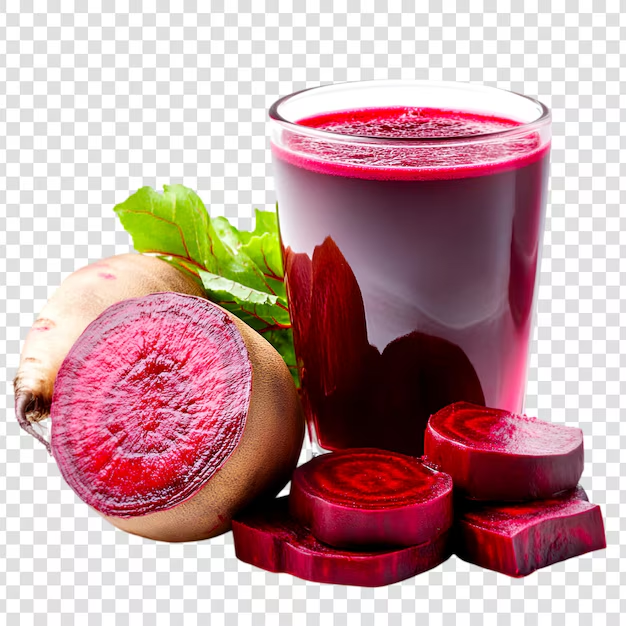
Beetroot juice is gaining popularity as one of the most powerful heart healthy beverages due to its high nitrate content. When consumed, these natural nitrates convert into nitric oxide in the body, which helps relax blood vessels, improve circulation, and lower blood pressure. This makes beet juice a natural and effective aid in supporting cardiovascular health.
Drinking beetroot juice regularly can enhance oxygen flow throughout the body and reduce the workload on the heart. It’s especially beneficial before workouts, as it boosts endurance and performance by increasing blood flow. For those managing high blood pressure or aiming to reduce heart disease risk, beet juice is a flavorful and nutritious addition to your daily routine.
As you explore more heart healthy beverages, don’t overlook the power of natural options like beetroot juice. Its earthy taste might take time to adjust to, but the heart-supporting benefits make it well worth the effort.
❤️ Why: Beets are rich in nitrates, which convert into nitric oxide—a compound that dilates blood vessels and lowers blood pressure.
💪 How It Helps:
Improves blood vessel function
Increases stamina for physical activity
Lowers systolic blood pressure
🍷 What to Do: Drink ½ to 1 cup daily. Blend fresh beets at home or buy 100% beet juice with no added sugars.
Caution: If you have kidney issues or low blood pressure, consult your doctor before regular beet juice consumption.
Go for Pomegranate Juice
Pomegranate juice stands out among heart healthy beverages for its rich concentration of antioxidants, particularly polyphenols. These powerful compounds help protect the heart by reducing oxidative stress, lowering inflammation, and preventing the buildup of plaque in the arteries. Regular consumption of pomegranate juice has been linked to improved cholesterol levels and reduced blood pressure.
Drinking a glass of 100% pure pomegranate juice daily can contribute significantly to cardiovascular wellness. Its vibrant color and naturally sweet taste make it an enjoyable alternative to sugary drinks, without compromising your health goals. It also supports better blood flow and keeps your arteries flexible—both vital for long-term heart health.
If you’re looking to add more heart healthy beverages to your diet, pomegranate juice is a delicious and easy choice. Just make sure to choose versions without added sugars to get the full benefits. A small daily serving can go a long way in protecting your heart.
🍇 Why: Pomegranates are loaded with polyphenols—potent antioxidants that protect the heart.
⚙️ How It Helps:
Lowers cholesterol
Reduces arterial plaque buildup
Improves blood circulation
Anti-inflammatory properties
🍶 What to Do: Drink 4–8 ounces a day. Make sure it’s 100% pure pomegranate juice with no added sugars.
Enjoy Hibiscus Tea
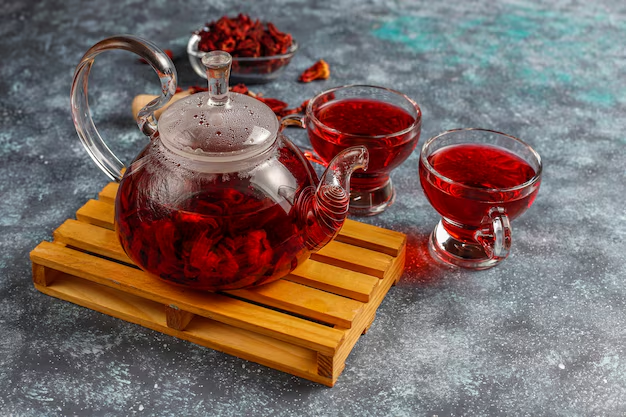
Hibiscus tea is a vibrant, floral infusion that ranks high among natural heart healthy beverages. Rich in antioxidants like anthocyanins and polyphenols, hibiscus tea has been shown to lower blood pressure and reduce LDL (bad) cholesterol levels—both key factors in preventing heart disease. Its natural ability to relax blood vessels makes it an effective remedy for hypertension.
Sipping on hibiscus tea daily can support overall cardiovascular function without added calories or caffeine. It’s a refreshing alternative to sugary drinks and can be enjoyed hot or cold. Studies have demonstrated that just two to three cups a day may significantly reduce systolic and diastolic blood pressure in people with mild hypertension.
As part of a heart-conscious lifestyle, hibiscus tea is a simple yet powerful addition to your daily routine. Including it among your heart healthy beverages offers a natural, flavorful way to protect your heart and promote long-term wellness.
🌺 Why: Hibiscus contains anthocyanins and polyphenols, which help lower blood pressure and inflammation.
📉 How It Helps:
Diuretic effect lowers blood pressure
Helps reduce LDL cholesterol
Fights free radicals
🍵 What to Do: Steep dried hibiscus flowers in hot water for 5–10 minutes. Drink 1–2 cups per day.\
Switch to Plant-Based Milk (Almond, Oat, Soy)
Making the switch to plant-based milk is a smart move when incorporating more heart healthy beverages into your diet. Unlike traditional dairy, plant-based options like almond, oat, and soy milk are typically lower in saturated fat and cholesterol, both of which can contribute to heart disease. These dairy alternatives offer a nutritious, heart-supportive way to enjoy your favorite drinks and recipes.
Almond milk is low in calories and rich in vitamin E, an antioxidant that helps protect blood vessels. Oat milk contains beta-glucans, which are known to help lower LDL (bad) cholesterol. Soy milk is an excellent source of plant-based protein and contains isoflavones, which may improve blood pressure and cholesterol levels.
When choosing plant-based milk, opt for unsweetened varieties to avoid added sugars. Including them as part of your regular intake of heart healthy beverages can support cardiovascular wellness while offering creamy, satisfying flavor.
🥛 Why: Dairy can be high in saturated fat. Plant-based milks (especially those fortified with calcium and vitamin D) offer a cholesterol-free alternative.
🧬 How It Helps:
Contains no cholesterol
Usually lower in saturated fat
Soy milk is rich in protein and may lower LDL
🥄 What to Do:
Look for unsweetened versions. Use in coffee, smoothies, cereal, or drink on its own.
Extra Benefit: Oat milk contains beta-glucan, a soluble fiber that helps lower cholesterol.
Load Up on Water-Infused with Fruits and Herbs
Staying hydrated is essential for a healthy heart, and water infused with fruits and herbs is one of the simplest yet most effective heart healthy beverages you can enjoy. This refreshing option enhances plain water with natural flavors and beneficial nutrients, encouraging you to drink more throughout the day without added sugars or calories.
Infused water made with ingredients like lemon, cucumber, mint, berries, or basil not only tastes great but also delivers antioxidants, vitamins, and minerals. These compounds can help reduce inflammation, support blood vessel function, and flush out toxins—all of which benefit cardiovascular health. Plus, the added flavor makes it easier to choose infused water over sugary or carbonated drinks.
As part of your daily hydration routine, fruit- and herb-infused water is an easy win. It’s cost-effective, customizable, and supports your goal of consuming more heart healthy beverages without compromising on taste or nutrition.
💧 Why: Hydration is key for heart function, but plain water can be boring. Infused water offers flavor with added benefits.
💚 How It Helps:
Keeps blood thin and flowing
Supports kidney function and detox
Enhances nutrient delivery to cells
🍋 What to Do:
Add slices of lemon, cucumber, berries, mint, or ginger to your water. Let it infuse for 1–2 hours in the fridge.
Fun Idea: Try combinations like strawberry-basil, cucumber-mint, or orange-rosemary.
Choose Black Coffee (in Moderation)
Black coffee, when consumed in moderation, can be one of the most surprising heart healthy beverages. It’s rich in antioxidants, including chlorogenic acid, which may help reduce inflammation and protect blood vessels. Studies have shown that moderate coffee intake—about 1 to 2 cups per day—can be linked to a reduced risk of heart disease and stroke.
Unlike sugar-laden coffee drinks, black coffee is naturally low in calories and free from saturated fat, making it a smart choice for those looking to support cardiovascular health. It may also improve metabolism and assist in managing weight—both important factors for heart wellness. Just be mindful of caffeine sensitivity and avoid consuming it too late in the day.
As part of a balanced routine, black coffee can complement other heart healthy beverages like green tea and infused water. When kept simple and unprocessed, it’s a flavorful way to support a healthier heart.
☕ Why: Coffee, in moderate amounts, has been shown to reduce the risk of heart failure and stroke.
🧪 How It Helps:
Rich in antioxidants like chlorogenic acid
May improve insulin sensitivity
Enhances alertness and physical performance
⏱️ What to Do:
Limit to 1–3 cups a day. Avoid creamers, sugars, or artificial flavors.
Warning: Too much caffeine can raise blood pressure and heart rate in some people. Know your tolerance.
Enjoy Red Wine Occasionally

Red wine, when enjoyed in moderation, can be considered one of the more indulgent heart healthy beverages. It contains polyphenols, particularly resveratrol, which are powerful antioxidants that may help protect the lining of blood vessels and reduce LDL (bad) cholesterol. These compounds support heart health by improving circulation and reducing inflammation.
Moderate consumption means no more than one glass per day for women and two for men. Drinking red wine occasionally—not daily—can be part of a balanced lifestyle. It’s best consumed with meals, where its heart-supporting benefits can be maximized without increasing health risks. Too much alcohol, however, can have the opposite effect, raising blood pressure and damaging heart tissue.
When included responsibly, red wine adds variety to your list of heart healthy beverages. Pairing it with a Mediterranean-style diet and regular exercise makes it part of a holistic approach to cardiovascular wellness without guilt or excess.
🍷 Why: Red wine contains resveratrol, a plant compound that protects the lining of blood vessels.
💖 How It Helps:
Raises HDL (good cholesterol)
Reduces blood clotting
Acts as an antioxidant
🍇 What to Do: Limit to one glass a day for women, two for men. Always consume with meals to minimize risk.
How These Beverages Help Your Heart (The Science)
💓 Lowering Blood Pressure: Several heart healthy beverages have natural compounds that help lower blood pressure. Hibiscus tea, for example, contains anthocyanins and other antioxidants that relax blood vessels and support healthy circulation. Beetroot juice is high in dietary nitrates, which convert to nitric oxide in the body—a compound that widens blood vessels and reduces vascular resistance. Green tea also supports nitric oxide production while offering anti-inflammatory benefits. Together, these drinks provide a powerful, natural way to keep blood pressure within a healthy range.
🧪 Fighting Inflammation: Chronic inflammation is a silent but significant contributor to heart disease. The antioxidants found in heart healthy beverages like pomegranate juice, red wine (in moderation), and herbal teas can combat oxidative stress and reduce inflammation throughout the cardiovascular system. These drinks help neutralize harmful free radicals, protecting your arteries and supporting long-term heart health.
🩸 Improving Cholesterol: Certain plant-based milks such as soy and oat milk are excellent for managing cholesterol levels. They contain fiber and plant sterols that reduce LDL (bad cholesterol), while green tea and pomegranate juice may help raise HDL (good cholesterol). By regularly including these heart healthy beverages in your diet, you can naturally improve your lipid profile and reduce the risk of arterial plaque buildup.
💧 Boosting Circulation and Blood Flow: Efficient blood flow is critical for heart health. Beetroot juice, rich in natural nitrates, enhances the dilation of blood vessels and increases oxygen delivery throughout the body. This leads to better circulation, improved endurance, and reduced workload on the heart. By adding these heart healthy beverages to your daily routine, you support not just your heart, but your entire vascular system.
Conclusion
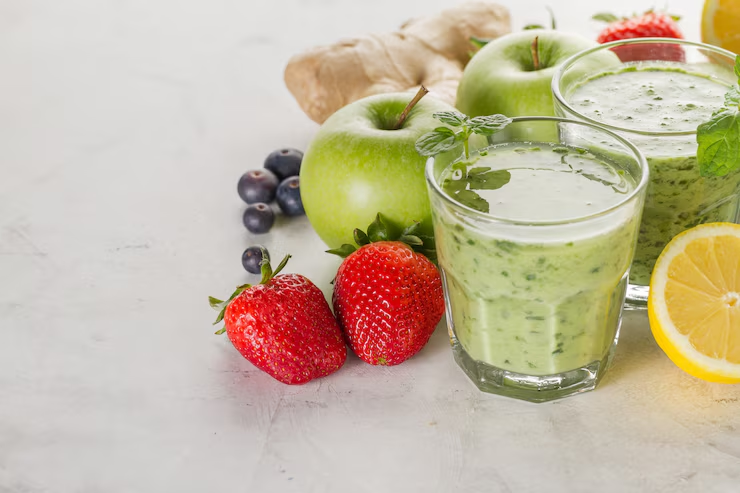
Heart health isn’t just about eating less or exercising more—it’s also about what you drink every day. Beverages play a major role in supporting or sabotaging your cardiovascular wellness. The right choices can nourish your heart, while the wrong ones can increase your risk of disease. That’s why incorporating heart healthy beverages into your daily routine is a smart and simple move.
Drinks like green tea, beetroot juice, and fruit-infused water are packed with antioxidants, nitrates, and other heart-supportive nutrients. These natural compounds help reduce blood pressure, fight inflammation, and boost overall circulation. By choosing these options over sugary sodas or overly caffeinated drinks, you give your heart the support it needs to stay strong and healthy.
Improving heart health doesn’t require a complete life overhaul. It begins with small, sustainable changes. And one of the easiest ways to start is by filling your glass with heart healthy beverages every day.
FAQs
Q1. What are the best heart healthy beverages to drink daily ?
Some of the best heart healthy beverages to include in your daily routine are green tea, beetroot juice, hibiscus tea, pomegranate juice, and water infused with fruits and herbs. These drinks support blood pressure, circulation, and cholesterol levels naturally.
Q2. How do heart healthy beverages help lower blood pressure ?
Many heart healthy beverages, like hibiscus tea and beet juice, contain natural compounds such as nitrates and antioxidants that relax blood vessels and improve blood flow. This results in a natural reduction in blood pressure over time.
Q3. Can I replace sugary drinks with heart healthy beverages ?
Yes, replacing sugary sodas and energy drinks with heart healthy beverages is one of the best ways to support cardiovascular health. It helps reduce calorie intake, inflammation, and the risk of heart disease.
Q4. Are plant-based milks considered heart healthy beverages ?
Unsweetened plant-based milks like almond, soy, and oat milk are excellent heart healthy beverages. They are low in saturated fats and often contain nutrients like potassium and fiber, which support cholesterol and blood pressure levels.
Q5. How much should I drink daily for heart benefits ?
While water remains essential, incorporating 1–2 servings of heart healthy beverages like green tea or pomegranate juice daily can provide added cardiovascular support. Be sure to keep portions moderate and avoid added sugars.


